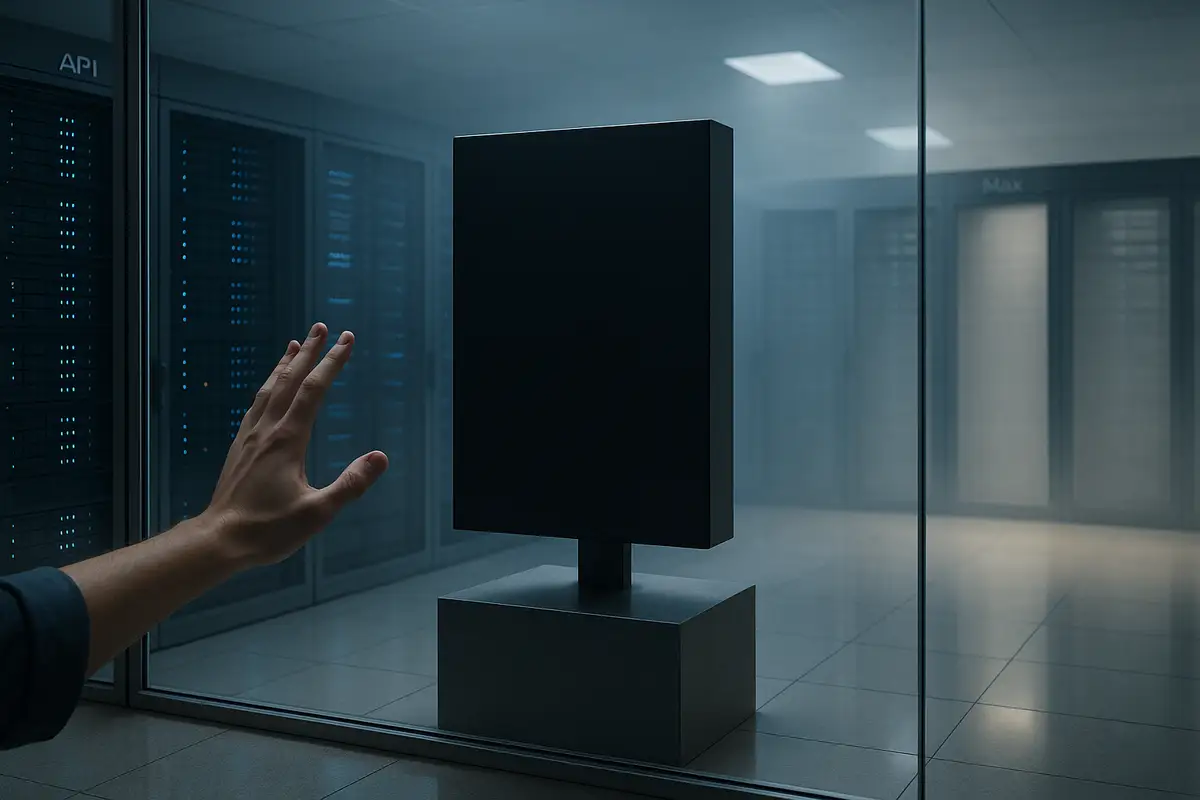💡 TL;DR - The 30 Seconds Version
👉 Anthropic closes $5 billion funding round at $170 billion valuation, nearly triple its $61.5 billion price from March 2024.
📊 The valuation makes Anthropic the third most valuable private tech company behind OpenAI ($300B) and SpaceX ($400B).
💰 Company revenue quadrupled to $4 billion this year as demand for AI tools exploded across businesses.
🔄 CEO Dario Amodei told staff the company will now accept Middle East investment after previously refusing authoritarian-backed funds.
🏗️ Iconiq Capital leads the round with Qatar's sovereign fund and Singapore's GIC joining the deal.
🌍 The AI safety movement loses its biggest corporate champion as competitive pressure forces ethical compromises.
Anthropic is closing a $5 billion funding round that values the AI company at $170 billion, according to Bloomberg. That's nearly triple what it was worth just four months ago.
Iconiq Capital leads the deal, Bloomberg reports. The San Francisco firm manages money for tech billionaires like Mark Zuckerberg and Jack Dorsey. Qatar's sovereign wealth fund and Singapore's GIC are also joining the round.
The valuation jump tells you everything about the current AI frenzy. Anthropic raised $3.5 billion in March at a $61.5 billion price tag. Now investors can't throw money fast enough at anything AI-related.
But here's what makes this interesting. Anthropic built its brand on being the ethical AI company. The responsible alternative to OpenAI. The startup that cared about safety over speed.
The Money Changes Everything
That positioning just went out the window. CEO Dario Amodei sent a memo to staff explaining why the company now takes Middle East investment, according to reports from Wired and the Financial Times. His exact words: "Unfortunately, I think 'no bad person should ever benefit from our success' is a pretty difficult principle to run a business on."
Translation: We need the cash more than we need our principles.
The memo came after the Financial Times reported that Anthropic was talking to UAE's MGX fund and other Middle Eastern investors. These are the same authoritarian-backed funds that Amodei previously said he wouldn't touch.
The Competition Problem
You can see why Anthropic changed course. OpenAI just hit a $300 billion valuation. Elon Musk wants $200 billion for xAI. The AI arms race demands massive capital for data centers, chips, and talent.
Anthropic's revenue hit $4 billion this year, up from around $1 billion, according to the Financial Times. Good numbers, but the company still needs massive cash for the infrastructure race ahead. Either take money from questionable sources or watch competitors pull away.
Middle Eastern governments have more money to invest than venture capital firms. The UAE's MGX fund manages $100 billion. Qatar's sovereign fund controls $500 billion. Most Silicon Valley investors can't write $5 billion checks from a single fund.
The Irony
The funding round exposes AI's dirty secret. Even companies that preach safety and ethics eventually bow to financial reality. Anthropic positioned itself as OpenAI's moral superior. Now it's taking money from the same sources.
The $170 billion valuation puts Anthropic behind only OpenAI ($300 billion) and SpaceX ($400 billion) among private tech companies. Not bad for a four-year-old startup founded by OpenAI defectors.
Iconiq's involvement adds another layer. The firm represents Zuckerberg, who's repositioning Meta to compete directly with Anthropic and OpenAI. So Meta's money manager now funds Meta's AI rival. Silicon Valley relationships get complicated fast.
Why this matters:
• The AI safety movement just lost its biggest corporate champion, proving that competitive pressure trumps ethical positioning every time
• Sovereign wealth funds from authoritarian regimes now hold significant stakes in the companies building humanity's most powerful technology technology
❓ Frequently Asked Questions
Q: What exactly is Iconiq Capital?
A: Iconiq Capital is a San Francisco investment firm that manages over $80 billion for tech billionaires. Their clients include Mark Zuckerberg, Jack Dorsey, Reid Hoffman, and Dustin Moskovitz. They started as a wealth adviser in 2011 and now lead major funding rounds.
Q: How did Anthropic's valuation nearly triple in four months?
A: Anthropic's revenue jumped from $1 billion to $4 billion this year as businesses rushed to adopt AI tools. The AI funding frenzy means investors will pay huge premiums for stakes in leading companies, driving valuations beyond traditional metrics.
Q: Who founded Anthropic and why did they leave OpenAI?
A: Dario Amodei and other senior OpenAI staff founded Anthropic in 2021 after clashing with Sam Altman over company direction. They wanted to focus more on AI safety and responsible development, positioning Anthropic as the ethical alternative.
Q: What will Anthropic use the $5 billion for?
A: The money funds the AI infrastructure arms race. Anthropic needs massive data centers, advanced chips, and top talent to train next-generation AI models. Building and running these systems costs billions annually.
Q: How much money do Middle Eastern sovereign funds actually have?
A: Qatar's sovereign fund manages $500 billion. UAE's MGX controls $100 billion. Saudi Arabia's PIF has $925 billion. These government funds dwarf most Silicon Valley venture firms, which typically manage $1-10 billion per fund.
Q: What is Anthropic's main product?
A: Anthropic makes Claude, an AI assistant that competes with OpenAI's ChatGPT. Claude is available through web chat, mobile apps, and an API for businesses. The company positions Claude as safer and more reliable than competitors.
Q: How does this funding compare to other AI companies?
A: OpenAI raised billions this year and hit a $300 billion valuation. Elon Musk's xAI wants $200 billion. The top three AI companies now have valuations exceeding most Fortune 500 companies, showing investor appetite for AI leaders.
Q: Does this mean AI safety is dead?
A: Not necessarily, but it shows competitive pressure trumps idealistic principles. Anthropic still talks about safety, but now takes money from authoritarian regimes. The company chose market survival over moral purity.













